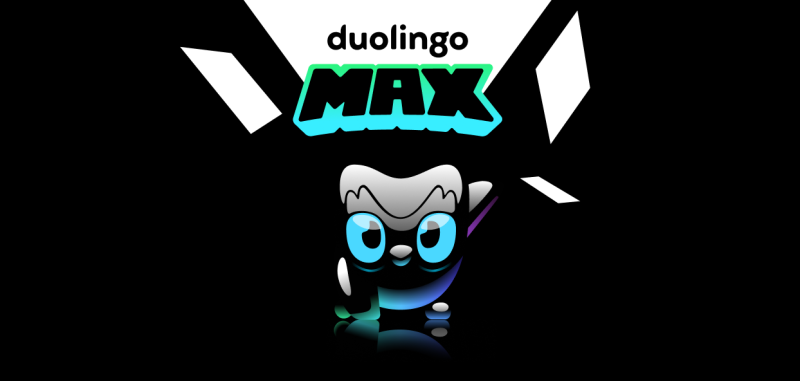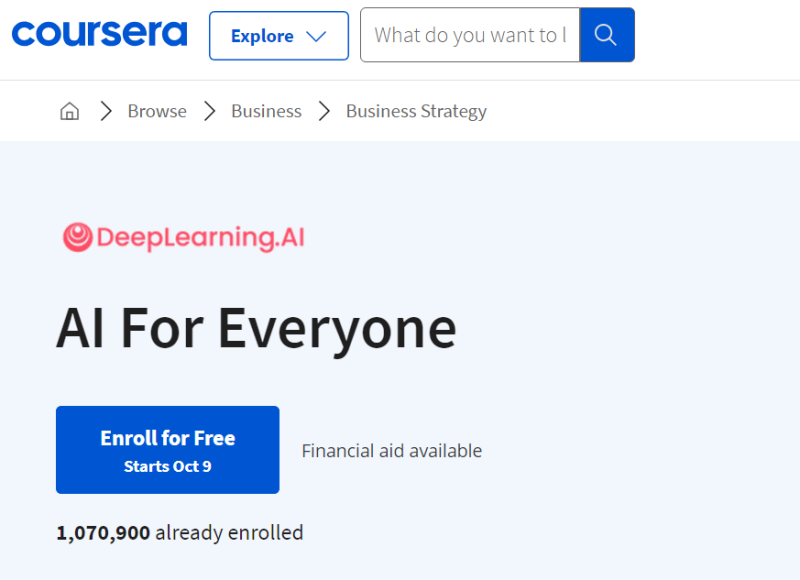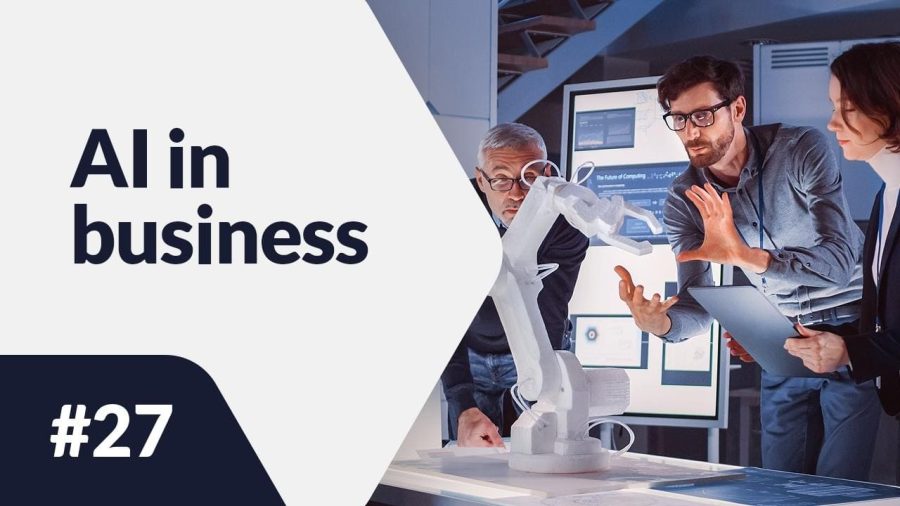Education companies around the world have AI personalize learning, provide accurate assessments and facilitate access to knowledge.
AI in EdTech – table of contents:
EdTech stands for education technology. It encompasses how new devices and methods feature in the process of acquiring knowledge at all levels – from kindergarten to higher education and adult education. But how is the potential of AI in EdTech exploited by companies to create new solutions and optimize existing ones?
What is EdTech?
The EdTech field includes projectors that display videos for classroom use, virtual labs and interactive educational games. But it also includes training platforms that enable the acquisition of practical professional skills in virtual reality (VR), where one can take online courses.
According to an August 2020 report by HolonIQ, the EdTech industry is expected to reach $404 billion by 2025, up 21% from 2022. The report indicates that the growth of the EdTech industry is supported by:
- Growing interest in online education – due to increasing access to devices and the Internet, the growth in popularity of online education will increase in the coming years around the world, especially in places with limited access to stationary forms of education,
- Developments in technology – artificial intelligence, machine learning and virtual reality are opening up new possibilities in education, allowing not only greater technical accessibility but also automatic translation into all languages,
- Demographic changes – an increase in the school-age population in developing countries is driving demand for education.
The HolonIQ report predicts that the greatest growth in the EdTech industry will be in developing countries such as China, India and Brazil. In these countries, the EdTech market is expected to reach $234 billion, $112 billion and $60 billion, respectively, by 2025.
How is AI changing EdTech?
Educational technologies make extensive use of the capabilities of artificial intelligence – from selecting course topics to guiding the learning process to evaluating the results. Using EdTech platforms, it is also possible to learn a lot about artificial intelligence. Artificial intelligence is therefore playing an increasingly important role in EdTech by introducing:
- personalized learning– AI can analyze learning progress and tailor learning materials to the user’s level and learning style. Equally important, AI technologies help keep learning regular and keep us motivated,
- virtual assistants – AI-based chatbots, including even ChatGPT, can feature as learning tools and answer follow-up questions to identify problems and improve the learning process, which is especially important during employee training,
- automatic translation – AI can translate educational materials into different languages, facilitating learning for students from all over the world,
- virtual and augmented reality – VR simulations and the addition of AI-enabled augmented reality (AR) elements to learning allow interactive learning by doing, so that you can, for example, learn how to operate specialized machinery without leaving home.
3 education companies that have successfully employed AI
EdTech companies applying AI offer their solutions to customers (B2C) or institutions (B2B) operating on a subscription model. The most successful are:
- Duolingo, a popular language learning platform, is using AI to personalize lessons and language tests. Working with OpenAI, the company behind ChatGPT, Duolingo has introduced two new features: Role Play, which is a linguistic play in a real conversation with a native speaker, and Explain my Answer, which generates an explanation of grammar rules when a learner makes a mistake. They are available in the new Duolingo Max subscription plan for English speakers who learn French or Spanish using Apple devices.
Duolingo has more than 500 million users worldwide and offers more than 100 language courses. The success of integrating AI into Duolingo’s business plans is evidenced by the numbers: the company generated $369.7 million in revenue in 2022, an increase of 47.3% over the previous year.

Source: Duolingo
- Coursera – one of the EdTech giants with 82 million learners worldwide, Coursera’s customer base grew by more than 70% in 2020 alone. It’s an e-learning platform offering access to courses prepared by major companies and 275 prestigious universities. When starting your adventure with Coursera, you need to fill out an initial questionnaire. Then the platform, using the AI-based CourseMatch tool, proposes increasingly relevant materials. And it provides a personalized learning path for each course.
Another innovation of CourseMatch is that it allows it to match academic courses offered by universities in desktop form with the content of online courses offered in the Coursera catalog. Another step in the development of artificial intelligence concerns machine learning to translate courses into different languages. Coursera also offers courses and certificates in artificial intelligence.

Source: Coursera
- Century Tech – is a learning platform for schools and businesses honored as a Technology Pioneer at the World Economic Forum that features AI to deliver flexible, continuously adaptable learning paths for students and innovative assessments that help teachers better understand their students’ potential.
Century Tech includes machine learning and neuroscience to identify knowledge gaps and customize content and pace of learning for each student. Century Tech is currently present in more than 2,000 schools in 50 countries.

Source: Century Tech
Summary
Creating a company in the EdTech sector that proposes AI solutions not only meets today’s educational needs but also opens up broad business prospects. Against the backdrop of rapid growth in the value of the EdTech market, which is expected to reach $404 billion by 2025, investment in AI is not only fashionable but also strategic. Indeed, artificial intelligence is becoming an integral part of the offerings of educational institutions and companies offering educational applications. What’s more, its role goes beyond technological aspects and is beginning to influence changes in the approach to education itself, from the way assessment is done to the approach to interdisciplinary teaching.
AI technologies offer tools that deal with mass personalization, scalability and data analysis in ways that traditional educational methods cannot. This is a space where innovative start-ups can not only gain a competitive advantage but also influence the future of education on a global scale. By addressing pressing needs, from bridging language barriers to creating interactive and engaging learning environments, companies applying AI in EdTech have the opportunity to become leaders in an industry worth hundreds of billions of dollars. In this context, the application of AI in EdTech is not only an answer to current challenges but also a way to build solid, future-proof value for investors and users.

If you like our content, join our busy bees community on Facebook, Twitter, LinkedIn, Instagram, YouTube, Pinterest, TikTok.
Author: Robert Whitney
JavaScript expert and instructor who coaches IT departments. His main goal is to up-level team productivity by teaching others how to effectively cooperate while coding.
AI in business:
- Threats and opportunities of AI in business (part 1)
- Threats and opportunities of AI in business (part 2)
- AI applications in business - overview
- AI-assisted text chatbots
- Business NLP today and tomorrow
- The role of AI in business decision-making
- Scheduling social media posts. How can AI help?
- Automated social media posts
- New services and products operating with AI
- What are the weaknesses of my business idea? A brainstorming session with ChatGPT
- Using ChatGPT in business
- Synthetic actors. Top 3 AI video generators
- 3 useful AI graphic design tools. Generative AI in business
- 3 awesome AI writers you must try out today
- Exploring the power of AI in music creation
- Navigating new business opportunities with ChatGPT-4
- AI tools for the manager
- 6 awesome ChatGTP plugins that will make your life easier
- 3 grafików AI. Generatywna sztuczna inteligencja dla biznesu
- What is the future of AI according to McKinsey Global Institute?
- Artificial intelligence in business - Introduction
- What is NLP, or natural language processing in business
- Automatic document processing
- Google Translate vs DeepL. 5 applications of machine translation for business
- The operation and business applications of voicebots
- Virtual assistant technology, or how to talk to AI?
- What is Business Intelligence?
- Will artificial intelligence replace business analysts?
- How can artificial intelligence help with BPM?
- AI and social media – what do they say about us?
- Artificial intelligence in content management
- Creative AI of today and tomorrow
- Multimodal AI and its applications in business
- New interactions. How is AI changing the way we operate devices?
- RPA and APIs in a digital company
- The future job market and upcoming professions
- AI in EdTech. 3 examples of companies that used the potential of artificial intelligence
- Artificial intelligence and the environment. 3 AI solutions to help you build a sustainable business
- AI content detectors. Are they worth it?
- ChatGPT vs Bard vs Bing. Which AI chatbot is leading the race?
- Is chatbot AI a competitor to Google search?
- Effective ChatGPT Prompts for HR and Recruitment
- Prompt engineering. What does a prompt engineer do?
- AI Mockup generator. Top 4 tools
- AI and what else? Top technology trends for business in 2024
- AI and business ethics. Why you should invest in ethical solutions
- Meta AI. What should you know about Facebook and Instagram's AI-supported features?
- AI regulation. What do you need to know as an entrepreneur?
- 5 new uses of AI in business
- AI products and projects - how are they different from others?
- AI-assisted process automation. Where to start?
- How do you match an AI solution to a business problem?
- AI as an expert on your team
- AI team vs. division of roles
- How to choose a career field in AI?
- Is it always worth it to add artificial intelligence to the product development process?
- AI in HR: How recruitment automation affects HR and team development
- 6 most interesting AI tools in 2023
- 6 biggest business mishaps caused by AI
- What is the company's AI maturity analysis?
- AI for B2B personalization
- ChatGPT use cases. 18 examples of how to improve your business with ChatGPT in 2024
- Microlearning. A quick way to get new skills
- The most interesting AI implementations in companies in 2024
- What do artificial intelligence specialists do?
- What challenges does the AI project bring?
- Top 8 AI tools for business in 2024
- AI in CRM. What does AI change in CRM tools?
- The UE AI Act. How does Europe regulate the use of artificial intelligence
- Sora. How will realistic videos from OpenAI change business?
- Top 7 AI website builders
- No-code tools and AI innovations
- How much does using AI increase the productivity of your team?
- How to use ChatGTP for market research?
- How to broaden the reach of your AI marketing campaign?
- "We are all developers". How can citizen developers help your company?
- AI in transportation and logistics
- What business pain points can AI fix?
- Artificial intelligence in the media
- AI in banking and finance. Stripe, Monzo, and Grab
- AI in the travel industry
- How AI is fostering the birth of new technologies
- The revolution of AI in social media
- AI in e-commerce. Overview of global leaders
- Top 4 AI image creation tools
- Top 5 AI tools for data analysis
- AI strategy in your company - how to build it?
- Best AI courses – 6 awesome recommendations
- Optimizing social media listening with AI tools
- IoT + AI, or how to reduce energy costs in a company
- AI in logistics. 5 best tools
- GPT Store – an overview of the most interesting GPTs for business
- LLM, GPT, RAG... What do AI acronyms mean?
- AI robots – the future or present of business?
- What is the cost of implementing AI in a company?
- How can AI help in a freelancer’s career?
- Automating work and increasing productivity. A guide to AI for freelancers
- AI for startups – best tools
- Building a website with AI
- OpenAI, Midjourney, Anthropic, Hugging Face. Who is who in the world of AI?
- Eleven Labs and what else? The most promising AI startups
- Synthetic data and its importance for the development of your business
- Top AI search engines. Where to look for AI tools?
- Video AI. The latest AI video generators
- AI for managers. How AI can make your job easier
- What’s new in Google Gemini? Everything you need to know
- AI in Poland. Companies, meetings, and conferences
- AI calendar. How to optimize your time in a company?
- AI and the future of work. How to prepare your business for change?
- AI voice cloning for business. How to create personalized voice messages with AI?
- Fact-checking and AI hallucinations
- AI in recruitment – developing recruitment materials step-by-step
- Midjourney v6. Innovations in AI image generation
- AI in SMEs. How can SMEs compete with giants using AI?
- How is AI changing influencer marketing?
- Is AI really a threat to developers? Devin and Microsoft AutoDev
- AI chatbots for e-commerce. Case studies
- Best AI chatbots for ecommerce. Platforms
- How to stay on top of what's going on in the AI world?
- Taming AI. How to take the first steps to apply AI in your business?
- Perplexity, Bing Copilot, or You.com? Comparing AI search engines
- ReALM. A groundbreaking language model from Apple?
- AI experts in Poland
- Google Genie — a generative AI model that creates fully interactive worlds from images
- Automation or augmentation? Two approaches to AI in a company
- LLMOps, or how to effectively manage language models in an organization
- AI video generation. New horizons in video content production for businesses
- Best AI transcription tools. How to transform long recordings into concise summaries?
- Sentiment analysis with AI. How does it help drive change in business?
- The role of AI in content moderation


















